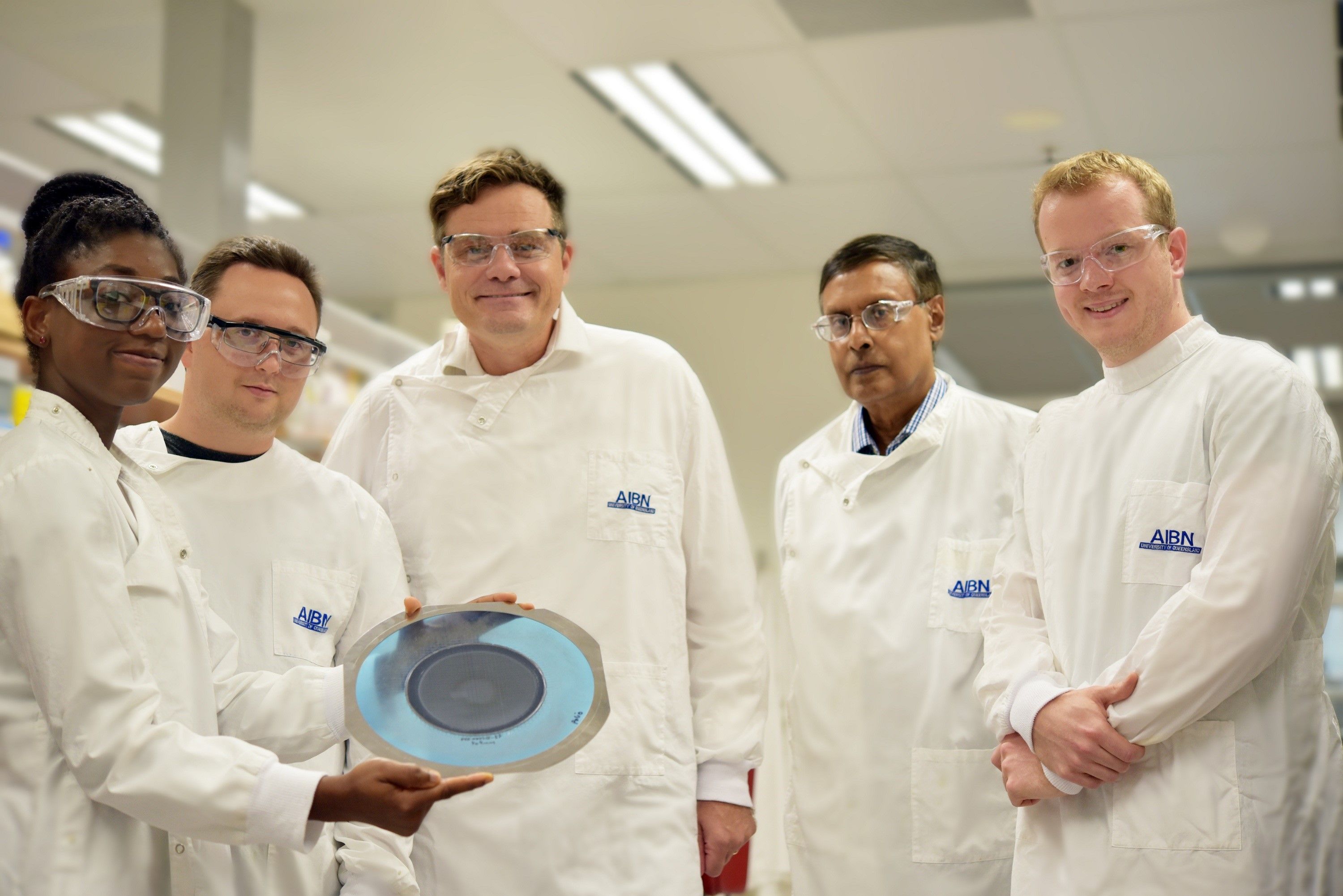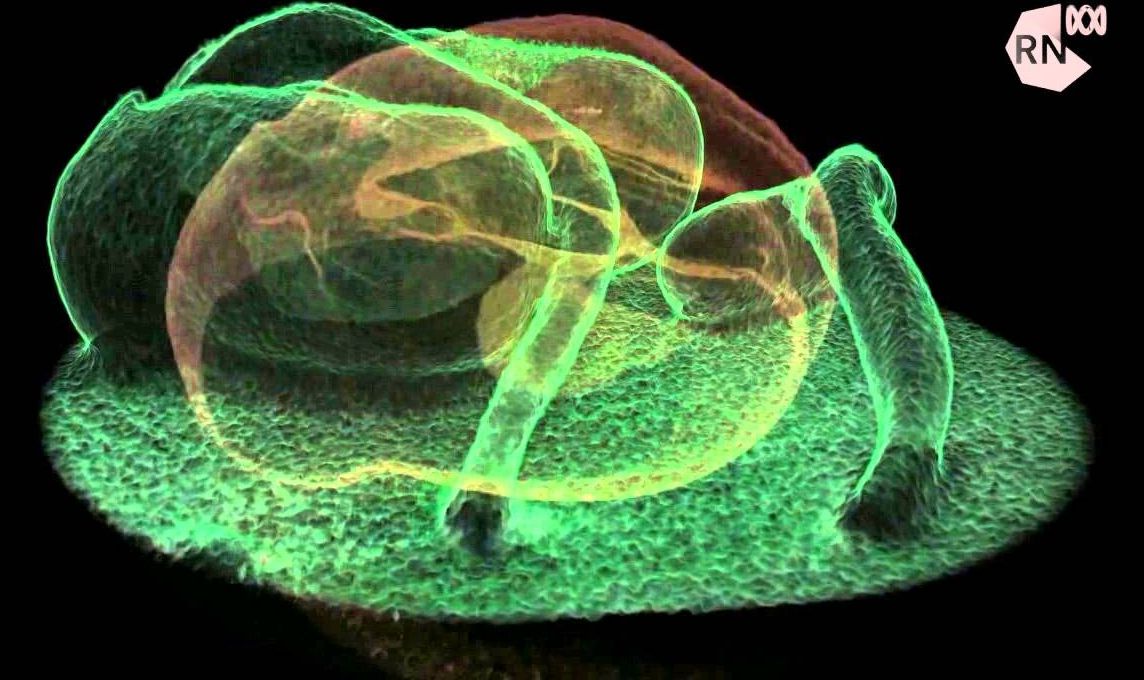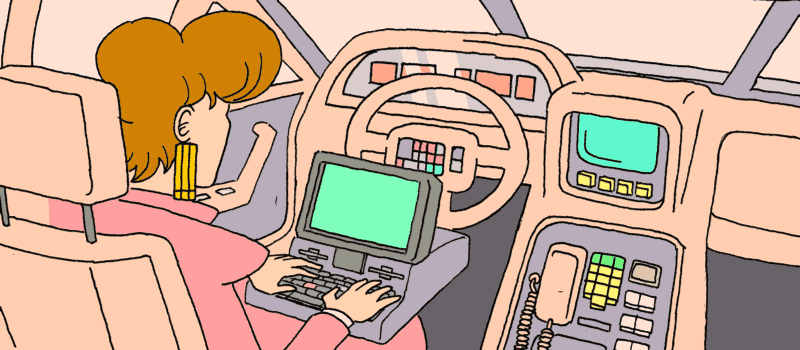Page 11326
Mar 1, 2016
Shape-shifting tech will change work as we know it | Sean Follmer
Posted by Gerard Bain in categories: futurism, mobile phones

What will the world look like when we move beyond the keyboard and mouse? Interaction designer Sean Follmer is building a future with machines that bring information to life under your fingers as you work with it. In this talk, check out prototypes for a 3D shape-shifting table, a phone that turns into a wristband, a deformable game controller and more that may change the way we live and work.
TEDTalks is a daily video podcast of the best talks and performances from the TED Conference, where the world’s leading thinkers and doers give the talk of their lives in 18 minutes (or less). Look for talks on Technology, Entertainment and Design — plus science, business, global issues, the arts and much more.
Continue reading “Shape-shifting tech will change work as we know it | Sean Follmer” »
Mar 1, 2016
DJI’s revolutionary Phantom 4 drone can dodge obstacles and track humans
Posted by Shailesh Prasad in categories: computing, drones, robotics/AI, transportation
When The Verge began covering “drones” three years ago, we got a lot of grief about using that word: drone. These were just remote control toys, they couldn’t fly themselves! When drones got smart enough to navigate using GPS, and to follow people around, the naysayers pointed out they still couldn’t see anything. It could follow you, sure, but not while avoiding trees. At CES the last two years we finally saw drones that could sense and avoid real-world obstacles. But those were just tech demos, R&D projects which so far haven’t been made commercially available.
That all changes today with the introduction of DJI’s new drone, the Phantom 4. It’s the first consumer unit that can see the world around it and adjust accordingly, the next big step towards a truly autonomous aircraft. Try and drive it into a wall, the Phantom 4 will put on the brakes. If you ask it to fly from your position to a spot across a river, and there is a bridge in between, it will make a judgement call: increase speed to clear the obstacle or, if that isn’t possible, stop and hover in place, awaiting your next command.
The Phantom 4 accomplishes this feat with the help of five cameras: two on the front and two on the bottom, plus the main 4K camera that has always been onboard to capture video. The images captured by these cameras are run through computer vision software which constructs a 3D model of the world around it that the drone can intelligently navigate.
Continue reading “DJI’s revolutionary Phantom 4 drone can dodge obstacles and track humans” »
Mar 1, 2016
Nanopatch polio vaccine success
Posted by Klaus Baldauf in categories: bioengineering, biotech/medical, health, nanotechnology
Needle-free Nanopatch technology developed at The University of Queensland has been used to successfully deliver an inactivated poliovirus vaccine.
Delivery of a polio vaccine with the Nanopatch was demonstrated by UQ’s Professor Mark Kendall and his research team at UQ’s Australian Institute for Bioengineering and Nanotechnology, in collaboration with the World Health Organisation, the US Centres for Disease Control and Prevention, and vaccine technology company Vaxxas.
Professor Kendall said the Nanopatch had been used to administer an inactivated Type 2 poliovirus vaccine in a rat model.
Mar 1, 2016
Triple entanglement paves way for quantum encryption
Posted by Shailesh Prasad in categories: encryption, quantum physics
Mar 1, 2016
There Will Be Netflix on Mars
Posted by Shailesh Prasad in categories: computing, internet, space
Mar 1, 2016
In the Future You’ll Be a Superhero and Here’s How You’ll Get Your Superpowers
Posted by Shailesh Prasad in categories: engineering, futurism
The knock on superheroes is that they’re unrealistic. This isn’t fair. Many superheroes have powers that we are close to or will be capable of engineering for ourselves. What’s unrealistic is the way those powers are doled out. Radioactive spiders aren’t going to make anyone strong any time soon.
Throw away those old origin stories and replace them with new scientific narratives and you’ve got something closer to the truth, which is this: We’re all going to have superpowers. Here’s the order in which we’re going to get them.
Superhuman Marksmanship
Continue reading “In the Future You’ll Be a Superhero and Here’s How You’ll Get Your Superpowers” »
Mar 1, 2016
What was Ray Kurzweil saying about the future in 1990?
Posted by Shailesh Prasad in categories: internet, Ray Kurzweil
Mar 1, 2016
Utilities Cautioned About Potential for a Cyberattack After Ukraine’s
Posted by Karen Hurst in categories: cybercrime/malcode, energy
Working remotely, attackers conducted “extensive reconnaissance” of the Ukraine power system’s networks, stole the credentials of operators and learned how to switch off the breakers, plunging more than 225,000 Ukrainians into darkness.

















